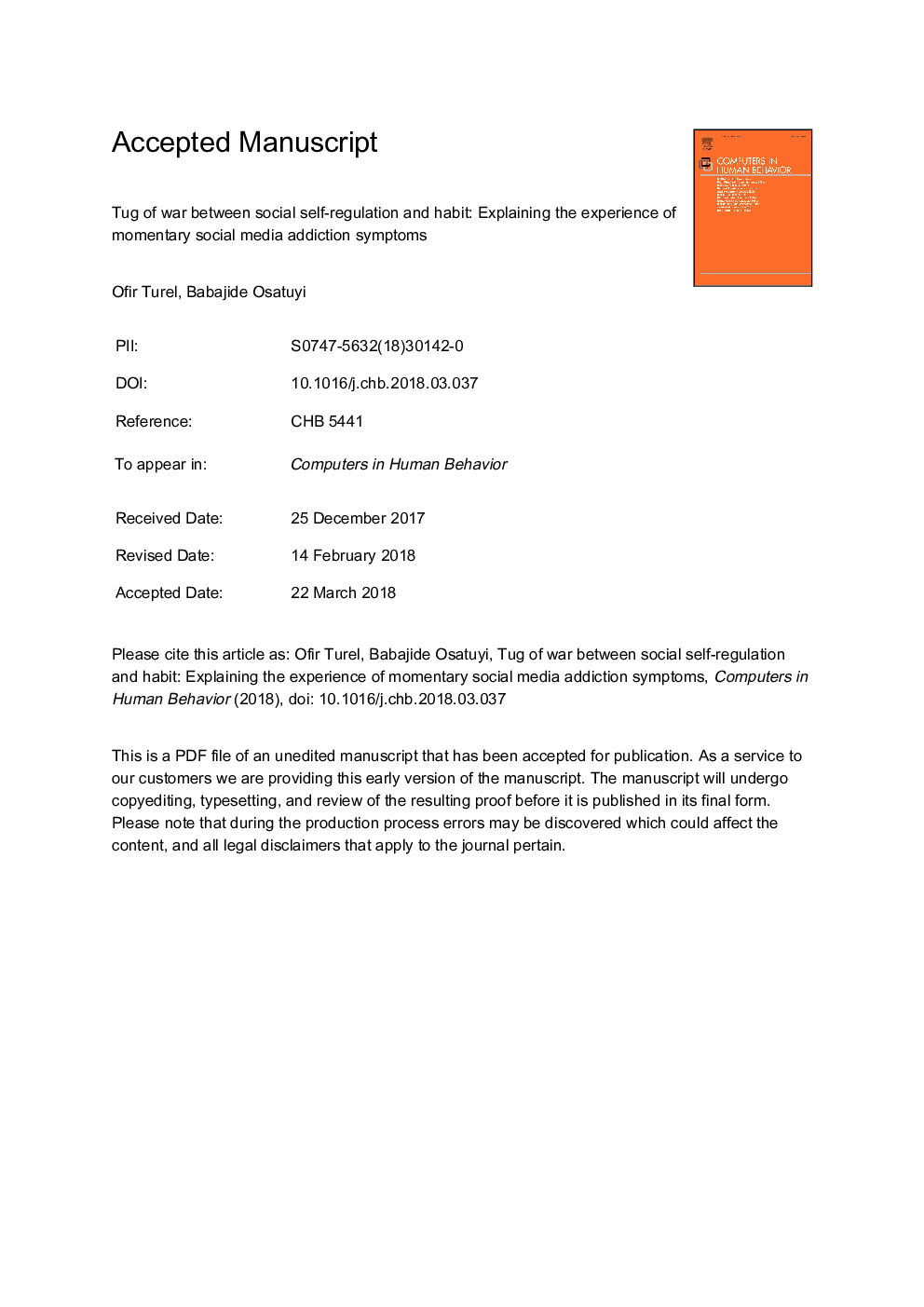| Article ID | Journal | Published Year | Pages | File Type |
|---|---|---|---|---|
| 6835900 | Computers in Human Behavior | 2018 | 28 Pages |
Abstract
Addiction-like symptoms in relation to social networking site (SNS) use are prevalent and can adversely affect users. This paper seeks to theorize on and examine the etiology of such symptoms. Relying on the dual system theory (DST) with a specific focus on social aspects, this manuscript develops a research model positing that the momentary experience of SNS addiction symptoms is driven by tug-of-war between social self-regulation (a reflective process) and habit (a reflexive process), the effect of which is mediated via SNS use. It then tests the hypotheses through analyzing survey data from 161 SNS users, using structural equation modeling techniques. Results support the dual system perspective we take. They show that (1) habit (a reflexive system manifestation) drives SNS use and the experience of addiction symptoms, (2) social self-regulation (a reflective system manifestation) inhibits use and the experience of addiction symptoms and, (3) dual system effects on momentary SNS addiction symptoms are mediated through SNS use. This study introduces and validates a model that explains the experience of momentary SNS addiction symptoms. In particular, the proposed model extends prior dual system models by examining an overlooked, yet important, reflective process (social self-regulation) in the context of SNS use; and by focusing on an important, prevalent, yet relatively disregarded outcome (momentary symptoms rather than full-fledged addiction). The findings point to interesting theoretical and practical implications.
Related Topics
Physical Sciences and Engineering
Computer Science
Computer Science Applications
Authors
Babajide Osatuyi, Ofir Turel,
